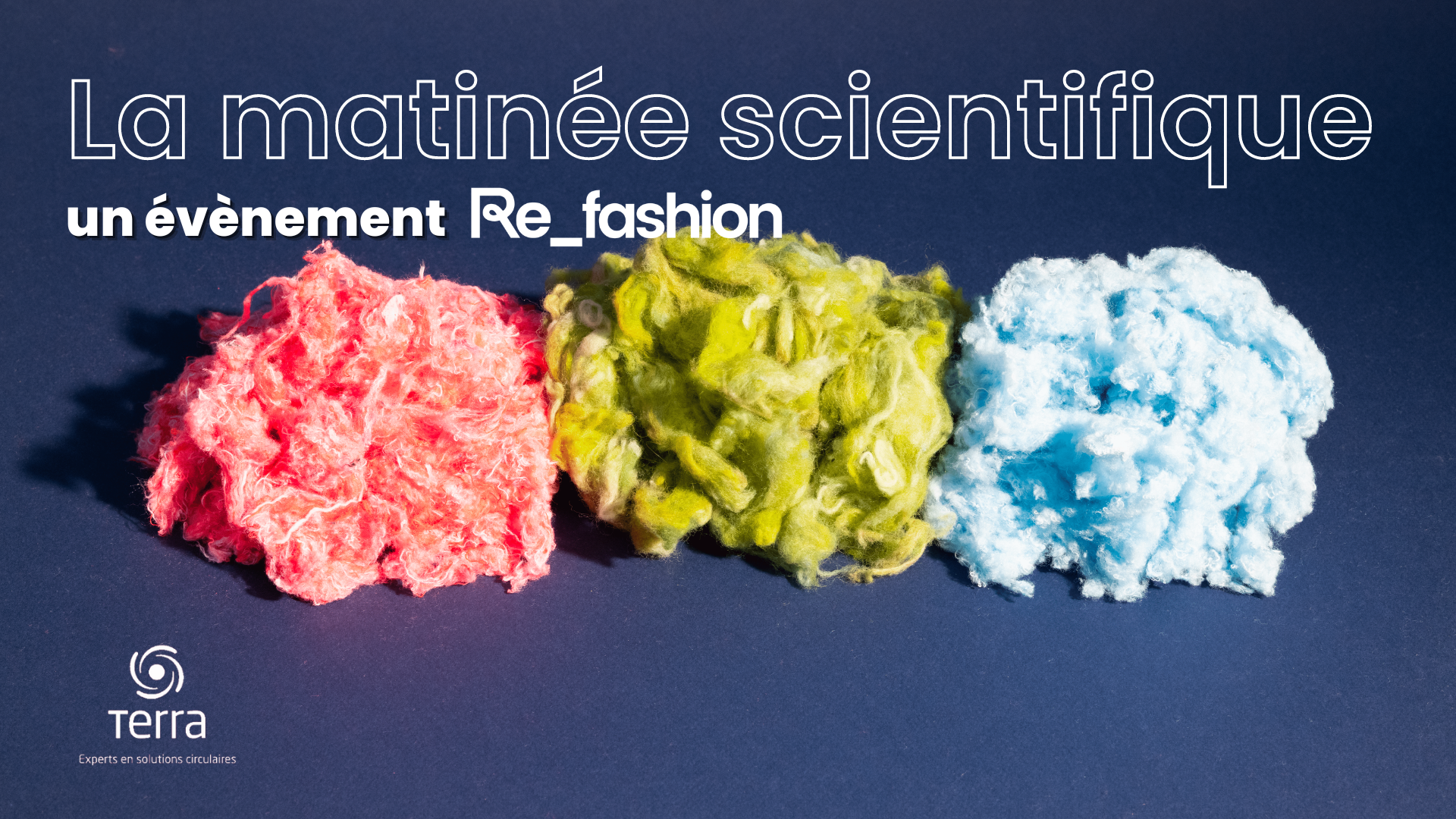On Wednesday 29 March Refashion held its second Scientific Morning, an event for the textile industry’s stakeholders who are all members of Refashion's Recycle network. The results of the updating work of two major studies were presented: the Characterisation of Incoming and Outgoing Streams in Sorting Centres and a State of the Art on European Automated Sorting and Disassembly Technologies.
The textile industry and the challenge of industrialising recycling in France and Europe
The textile industry is facing increasing volumes of used, non-reusable clothing and footwear textiles which could be treated in France and in Europe if recycling were to become more industrialised and provide homogeneous, recycled quality materials in an open or closed loop.
Industrialising recycling is a true challenge because the deposit of CHF (clothing, household linen and footwear) waste is heterogeneous and comprised of a large variety of products, materials, types of assembly configurations, etc. Moreover, second-sort techniques (characterisation) and disassembly operations are still primarily carried out manually.
3 conditions to accelerate the industrialisation of used, non-reusable CHF recycling in France and Europe:
-
Markets needing recycled materials: to meet this need Refashion connects stakeholders via its Recycle by Refashion platform
-
Clothing textiles that are sorted per material and prepared according to the needs of recycling operators: post-consumption CHF deposit is very heterogeneous and contains many recycling disruptors
-
Processes and technologies to industrialise second-sort and preparation operation
How can this be achieved?
To accelerate the industrialisation of recycling, it is necessary to prepare waste textiles using material-colour characterisation and disassembly by developing:
-
Automated sorting and characterisation techniques in order to separate CHF waste into homogeneous categories (per type of fibre and material)
-
Automated processes for disassembly (removal of hard points and other recycling disruptors), cutting, shredding and preparation, which, combined with optical sorting, will enable homogeneous materials to be produced that meet the specifications set by recycling operators and will find proper market outlets.
Updating work
With the support of the engineering consultancy, Terra, two major studies that assist the textile industry in the industrialisation of recycling, were updated.
1. The Charaterisation Study on Incoming and Outgoing Streams in Sorting Centres (updating and further in-depth examination of the study's 2013 results): with the aim of improving the understanding: in the composition of streams collected according to collection sources and in the breakdown of outgoing streams. The study lasted 18 months.
-
Incoming streams: 122 tonnes were analysed, i.e. around 720,000 items coming from 6 partner sorting centres with traceability of the collection source (containers located on public/private roads, associations, municipal recycling facilities, in-shop collection, etc.).
-
Outgoing streams: 15 tonnes randomly sampled in the sorting categories excluding reuse (excluding footwear and non-CHF) in order to analyse material composition, colour and the presence or absence of recycling disruptors.
2. A State of the Art on Recognition and Textile Material Sorting Technologies, complete with a section on disassembly technologies in Europe (update of the 2019 state of the art report). The study thereby covers all the characterisation stages for preparing materials for recycling processes. It also provides an overview of the stakeholders and projects working on this topic in Europe.
Relive the Scientific Morning!
The event is now available for replay! Click here to watch our speakers and the ensuing discussions with the public again.

List of speakers:
-
Véronique Allaire & Cécile Martin, Refashion
-
Etienne Ageneau & Brendan Guérin, Terra
-
Martin Holicky, Matoha
-
Louisa Hoyes, Tomra
-
Silvia Gregorini, Picvisa
-
Marc Minassian, Pellenc ST
-
Benoit Rombaut, Andritz Laroche
Find the summaries of the studies presented during the Scientific Morning event here
Find a range of resources on the Recycle by Refashion platform

